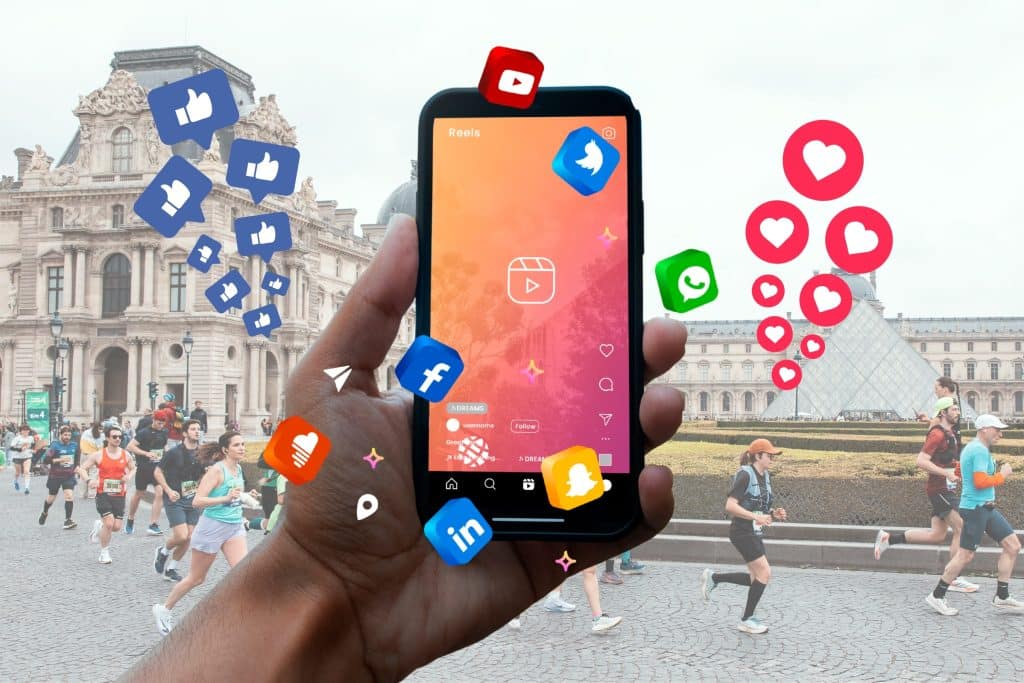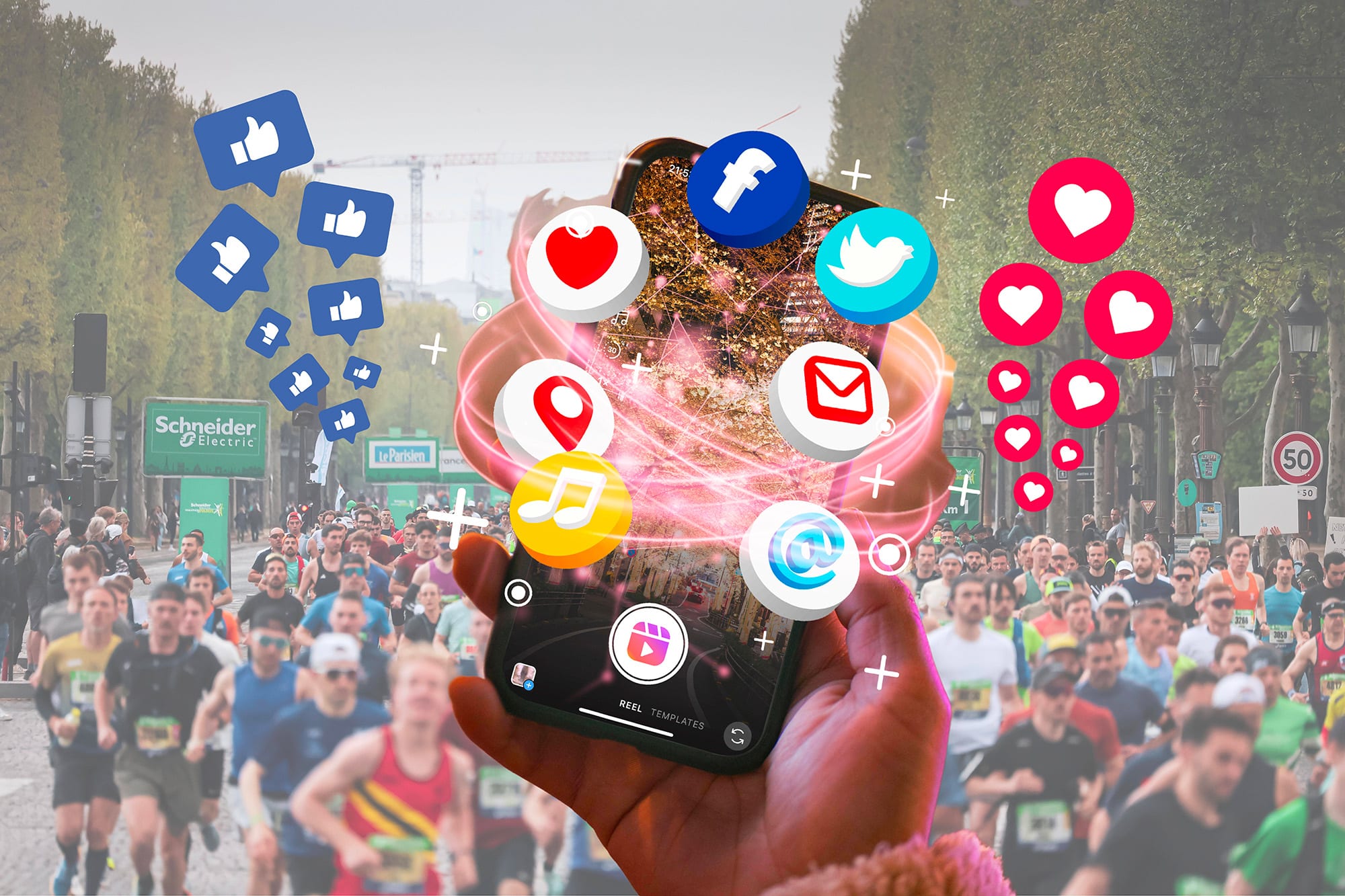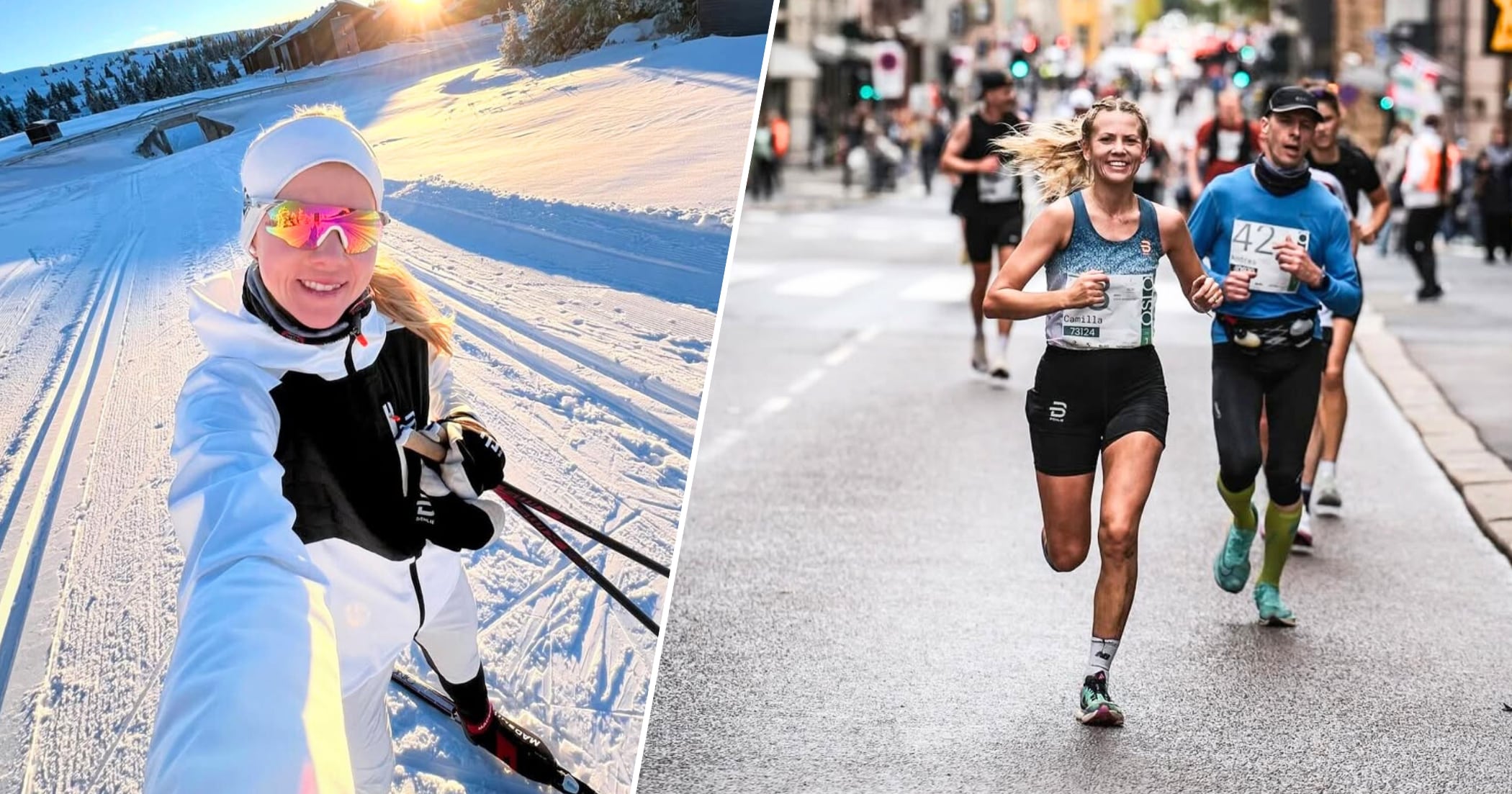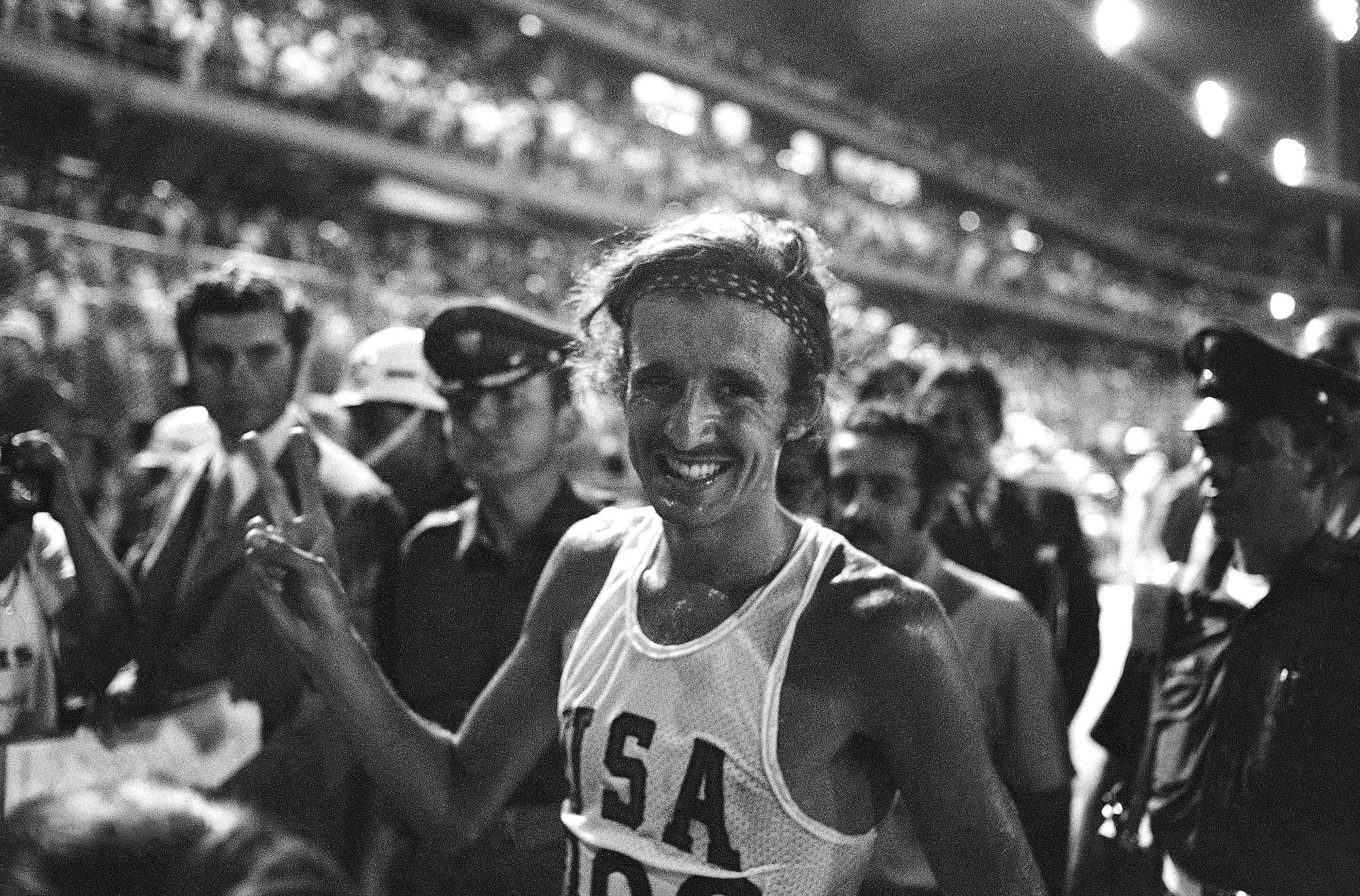Social media: what impact on beginner runners?
Strava, Instagram, TikTok… Running is no longer invisible to the algorithms. In the age of connected sports, social media does more than accompany runners: it influences their beginnings, dictates their paces, and rewrites their motivations. For better… and sometimes for burnout.
At first glance, running seems like a straightforward sport. A pair of shorts, a pair of sneakers, and the desire to push a little further. But by 2025, it’s difficult to set off without your favorite app, without your GPS watch, without considering a post-run story. And for beginner runners, new to the world of running, this digital layer adds an unexpected element: the scrutiny of others.
In a world where we “share” everything—our meals, our moods, our daily steps— running also becomes content. As a result, social media increasingly influences how people start running. They motivate, guide, connect… but can also cause stress, lead to insecurity, and isolation. How do beginners handle this exposure? What role do likes play in their runs? Between social pressure and collective motivation, let’s explore this practice as connected as it is fragmented.
| Social media as a catalyst
For many new runners, social media isn’t just a backdrop: it’s often the very catalyst. It’s not a coach, a sudden desire, or a New Year’s resolution that inspires them to lace up their shoes, but the repeated sight of a friend or influencer consistently running in their feed.
“During lockdown, I saw lots of people posting their sessions. I thought: if they can do it, why can’t I?”, shares Amel, 27, a community manager in Grenoble, who previously didn’t engage in any sport. A year later, she’s completed her first official 10 km and documents her own runs. “It’s become a virtuous circle. I post, it motivates my friends, they start too, and it gives me even more motivation to continue.”
Instagram and Strava have, for some, replaced gyms or groups of friends as a motivator to start. This domino effect is encouraged by the platforms, which spotlight content related to sport, progression, and self-improvement. Running then becomes a shared, valued act, almost “socially encouraged”.

“Initially, I posted each run, every small progress. But when I didn’t hit my usual time, I hesitated to share anything. I felt people would judge me”
Clément, runner in recovery
| The mirror effect: running for others?
Yet this positive dynamic also conceals a gray area, where running begins to align with other motivations: those of exhibition, comparison, even social performance. Once you’ve posted your first run, it’s hard to return to a more private practice.
“In the beginning, I posted each run, every little progress. But as soon as I didn’t hit a good time, I didn’t dare to publish anything. I felt like people would judge me,” explains Clément, 34, who returned to running after ten years without sports. Behind the screen, the audience is silent but ever-present. And this gaze—whether real or imagined—influences decisions like how many kilometers to run, the pace, the frequency.
Comparison becomes inevitable. You observe others, position yourself, judge yourself. Even unconsciously. “I almost quit Strava because I felt so inadequate. My mates were doing 10 km at 4’30/km, and I was at 6’15,” sighs Lucas, 22. The joy of running can quickly turn into a quest for digital legitimacy.
| Injuries, frustrations… and a beneficial disconnect
By trying to keep up with the pace set by others—or rather by what we think they expect from us— some beginners push too far, too fast. There’s a risk of injury, and burnout isn’t far off. Pierre, 25, experienced this: “I was determined to beat a Strava segment in my neighborhood. I pushed myself ridiculously hard even though I was just starting out. Result: shin splints, and a six-week hiatus.” Like him, many find out that the algorithm doesn’t recognize human limits. It praises every run but never advises when it’s time to rest.
Paradoxically, it’s often by disconnecting that runners rediscover the essence of the sport. “I ditched Strava for a month. I ran without a watch, just with a playlist. It felt amazing,” shares Lucas. Without immediate feedback, without numbers, without external eyes, running becomes an internal activity. And for many, it’s a necessary breath of fresh air.
“I posted that I ran my first 6 km without stopping. I received ten messages from girls who were also beginning. We met up to run together, and now it’s our Sunday morning ritual”
Jade, part of a small running group in Lyon
| A collective strength when used well
Thankfully, social media isn’t solely a source of pressure. Used wisely, it can be a genuine support. Its ability to create communities, connect isolated runners, and encourage mutual assistance is invaluable, especially for beginners. Jade, a 30-year-old from Lyon, experienced it: “I posted that I’d run my first 6 km without stopping. I received ten messages from girls who were also starting out. We met up to run together, and now it’s our Sunday morning ritual.” These small groups, often informal, offer an alternative to traditional clubs: more freedom, more accessibility, more in tune with new ways of practicing.
Accounts like those of RunMotion, community clubs like adidas Runners, or local WhatsApp groups also allow beginners to ask questions, share their struggles, and feel less alone. When comparison gives way to solidarity, the digital realm becomes a true springboard.
| Running for oneself, truly
The real challenge, ultimately, is here: managing to maintain a personal space in a hyper-connected practice. Running without needing to prove it. Being proud of your progress, even if it doesn’t appear on the feed. Finding joy in simply moving, without external validation. Running holds this magic: it requires almost nothing. While social media can be a stepping stone initially, it shouldn’t become a permanent crutch. “Now, I only post what truly makes me proud. The rest is just for me,” sums up Amel. This balance isn’t always easy to find, but it makes all the difference.
Social media isn’t inherently good or bad for beginner runners. It’s powerful. Both a source of motivation, discovery, and connection, but also a diffuser of norms, pressures, and doubts. What matters is how we use it. And the ability to refocus on what running should always be: a personal moment, without pressure, without filters, without obligatory likes.



